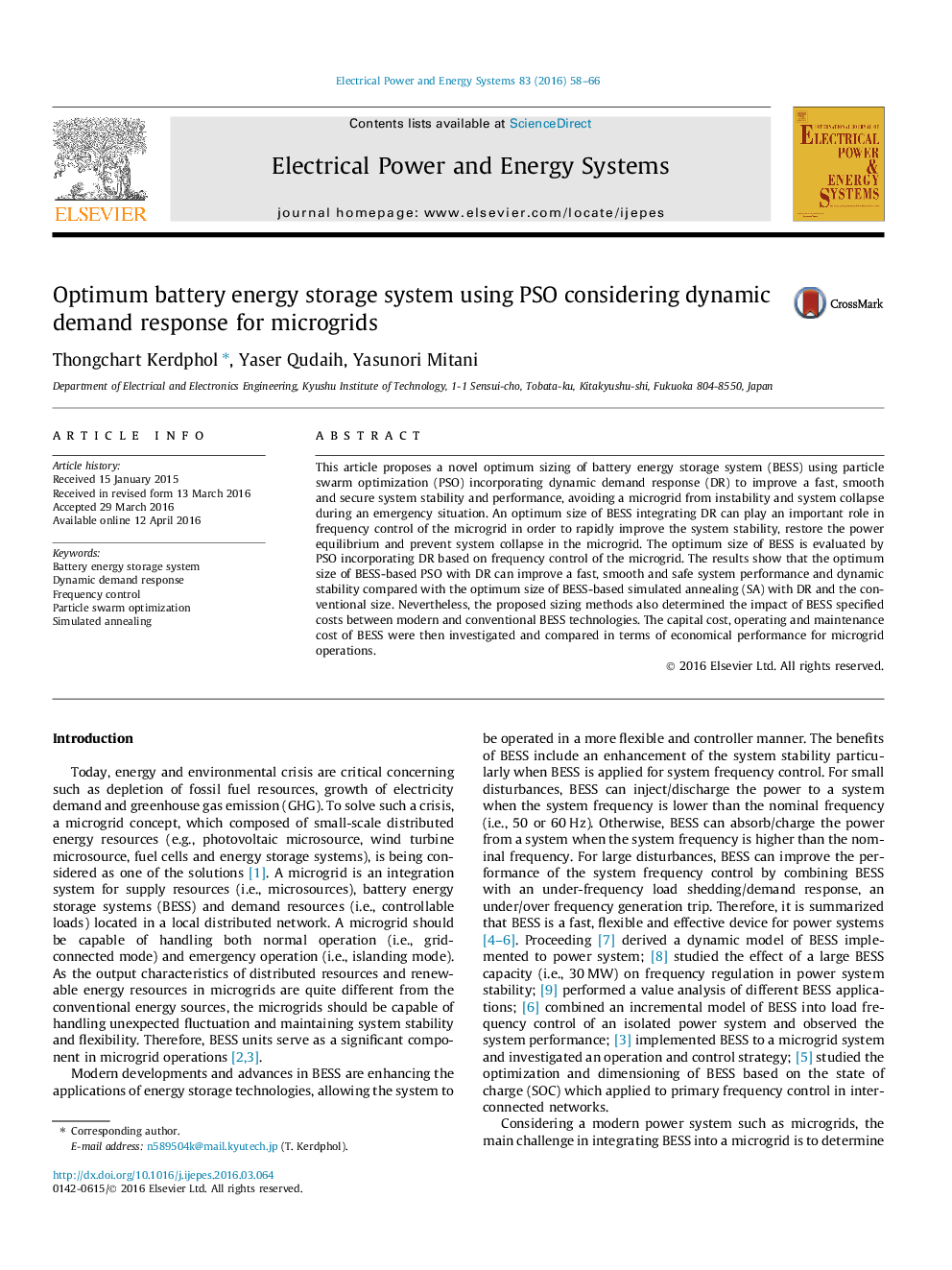| Article ID | Journal | Published Year | Pages | File Type |
|---|---|---|---|---|
| 400314 | International Journal of Electrical Power & Energy Systems | 2016 | 9 Pages |
•This article proposes a novel optimum sizing of BESS using PSO incorporating DR to improve a fast, smooth and secure system stability and performance, avoiding a microgrid from instability and system collapse.•This research investigated and determined the economical performance of both modern BESS and conventional BESS technologies for microgrid operations.•The proposed optimum size of BESS based-PSO with DR is compared with the optimum size of BESS based Simulated Annealing (SA) with DR and the conventional size of BESS.•The study microgrid is typical to the real microgrid available at Mae Hong Son province, Thailand which initiated and funded by United Nations Development Programme (UNDP) and Global Environment Facility (GEF).
This article proposes a novel optimum sizing of battery energy storage system (BESS) using particle swarm optimization (PSO) incorporating dynamic demand response (DR) to improve a fast, smooth and secure system stability and performance, avoiding a microgrid from instability and system collapse during an emergency situation. An optimum size of BESS integrating DR can play an important role in frequency control of the microgrid in order to rapidly improve the system stability, restore the power equilibrium and prevent system collapse in the microgrid. The optimum size of BESS is evaluated by PSO incorporating DR based on frequency control of the microgrid. The results show that the optimum size of BESS-based PSO with DR can improve a fast, smooth and safe system performance and dynamic stability compared with the optimum size of BESS-based simulated annealing (SA) with DR and the conventional size. Nevertheless, the proposed sizing methods also determined the impact of BESS specified costs between modern and conventional BESS technologies. The capital cost, operating and maintenance cost of BESS were then investigated and compared in terms of economical performance for microgrid operations.
